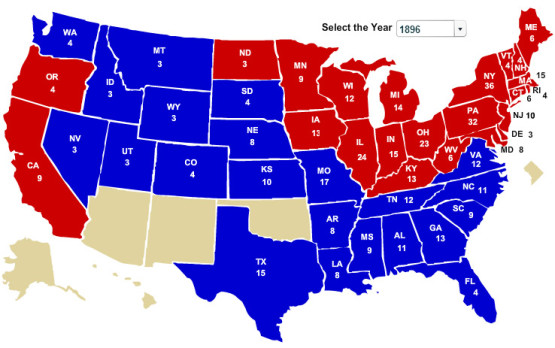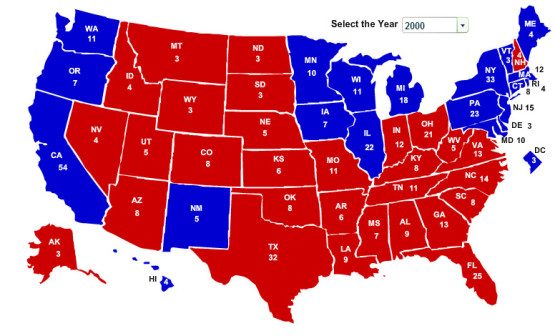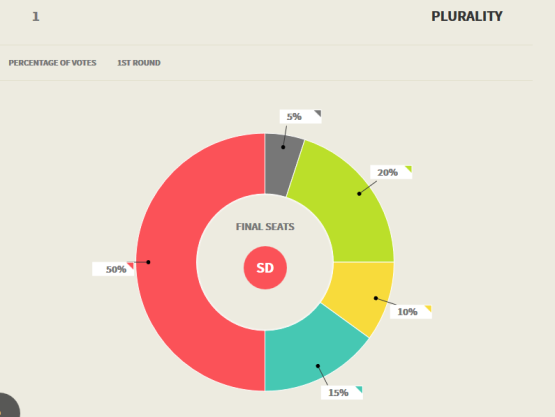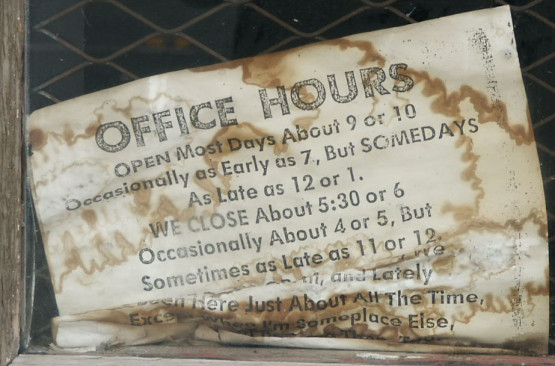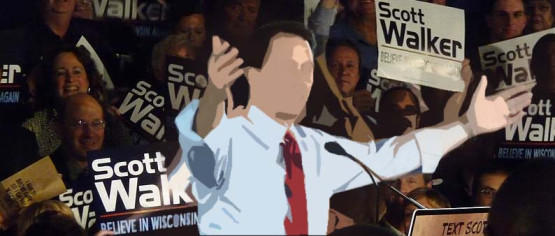Category Archives: Statehouse
This is a setup for an OT post on the UK election.
It’s actually a little bit too simplistic to say that “Well, what happened was that the parties reversed themselves from liberal to conservative and vice-versa.”
There is some of that, particularly in the South, but the Great Plains and Mountain West states weren’t particularly conservative, at least as far as economics goes. They voted for William Jennings Bryan, who wasn’t exactly a conservative Democrat. The explanation does carry some weight when it comes to social issues (WJB being famous for arguing against evolution). But one of the stories here is that conservatism won these regions. There is still a degree of economic populism in these states, but that has taken a back seat to cultural alignment.
It actually makes me wonder if there isn’t a lesson here in future realignment, if the Emerging Democratic Majority holds and we need a whole new realignment to get to two parties. It actually wouldn’t surprise me if some of the economic liberally states don’t start pulling back, and some of the current conservative states realize that they need a robust national government. It’s not the most likely scenario, but I could sort of see it. Maybe.
One of the interesting thing about Hillary Clinton’s totally expected announcement that she’s running for president is that her campaign is being called “Hillary for America.” Interesting less because of The West Wing connection and more because of the “Hillary” part.
It may not be exactly the same as the long list of celebrities known by their first names. But Hillary Clinton has become known simply as Hillary in bumper stickers and headlines, on Twitter and Facebook, around water coolers and in coffee shops.
Yet some Americans, mostly women, don’t think the former secretary of state, U.S. senator from New York and first lady should be called by just her first name.
“I think it’s pretty unjust,” said Monica Warek, 23, on a recent visit to Washington from New York City. “I think it shows the level of inequality that still exists in the workforce and just in general in society.”
As Clinton gets ready to kick off her campaign for the White House, some wonder whether calling a female candidate by her first name reinforces gender stereotypes.
Or does it make her seem more personable?
 I’ve generally taken pains to avoid referring to her as just Hillary. I haven’t been 100%, but I refer to her as HRC quite a bit, or Clinton when I don’t think she will be confused with her husband. The husband thing is what makes it difficult, and useful, to consider referring to her by her first name. But I have resisted for a couple of reasons:
I’ve generally taken pains to avoid referring to her as just Hillary. I haven’t been 100%, but I refer to her as HRC quite a bit, or Clinton when I don’t think she will be confused with her husband. The husband thing is what makes it difficult, and useful, to consider referring to her by her first name. But I have resisted for a couple of reasons:
The first I more generally prefer not to use informal names when referring to politicians and presidents specifically. I almost never referred George W. Bush as W or Dubya, much less Shrub. It’s part of a general preference of formality when dealing with our leaders.
The second is sexism, both baseless accusations and out of genuine concern. The article deals more with #2. I don’t think I would refer to Hillary Rodham Clinton as Hillary for a sexist reason. Whatever thoughts I had about her position as a teammate of her husband’s has not been the case for some time. Her tenure as secretary of state has done a great deal towards positioning her less as a teammate and more as an independent actor. And though I prefer Romney to Mitt, I would say the latter. And perhaps most pertinently, I almost exclusively use Jeb to refer to John Ellis Bush. The pertinence of the last being that the first name is for the exact same reason: To avoid confusion with more prominent people with the same surname.
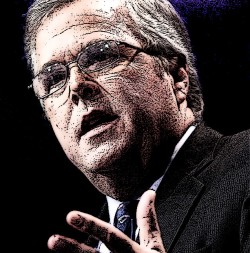 If Hillary Clinton wins the presidency, her tenure will make her “Clinton” throughout the same way that GWB became “Bush” throughout his. It’s the former president that gets the first-name treatment or some other qualifier. For Bill it will be Bill, for Georges it will be the H or the W. When GWB was president, I referred to his father as George H Bush, Bush the Elder, or the First Bush. Now that both are former presidents, I only rarely use Bush by itself – unless it’s completely obvious who I am referring to – and go with GWB or Bush the Younger.
If Hillary Clinton wins the presidency, her tenure will make her “Clinton” throughout the same way that GWB became “Bush” throughout his. It’s the former president that gets the first-name treatment or some other qualifier. For Bill it will be Bill, for Georges it will be the H or the W. When GWB was president, I referred to his father as George H Bush, Bush the Elder, or the First Bush. Now that both are former presidents, I only rarely use Bush by itself – unless it’s completely obvious who I am referring to – and go with GWB or Bush the Younger.
Since the campaign is called Hillary for America – and since she presently does not hold office – I will generally stop trying as hard as I do to avoid referring to her as just Hillary until she takes office.
The discussion of Indiana, RFRA, and anti-discrimination law and mandatory provision law (think contraception) brings up an argument I often hear: You might be able to let urban locations discriminate, but in more rural parts, you might run in to situations where they are the only X in town and the next one is two hours away!
This… is the case a lot less frequently than you think. And applies to remarkably few people. Sufficiently few that, on its own, it’s not really a compelling argument for national or even statewide policy.
I have lived and spent time in some pretty rural places. One of the things that surprised me is that even in pretty small towns, there are often more than one of just about everything. Callie, Arapaho, has between 4,000 and 5,000 people in it. If we take the county, and even include the neighboring county, you’re still in the very low five digits with a population density of between 1 and 2 people per square mile. Callie has four auto repair shops three pharmacies, three auto mechanics, two coffee shops (more than two, really), two medical clinics, two barber shops, two veterinarians, and two grocery stores, and two towing services. There were ones of some things, and there were none of a lot more.
This is not to say that there aren’t any one-pharmacy towns. But they’re hard to find. First of all, because the cut-off to being able to support two pharmacies seems to be somewhere in the four digits, that includes a whole lot of people we consider to be Rural Americans. Even relatively poor counties often have more than one, or go back and forth between one and two indicating a danger in taking the community for granted.
I blame television.
In the Andy Griffith show, Mayberry had one of just about everything. There seemed to be one of a lot of things in Twin Peaks, too (which technically had 50,000, but only because the studio made them change it from 5,000… trust me, it was a 5,000 town). But that’s a casting decision. Keeps things simple.
Now, there is the phenomenon of places in small towns closing. So a county that has two may go down to one. But… a town with only one may go down to none.
The towns to the east, in the neighboring county, was a single-pharmacy town. But it closed, right about the time that the third pharmacy in Callie opened up. Which is often how it goes. Even within small towns, there is a degree of consolidation. A place in some outlying small town goes out of business in favor of something in the county seat. That sort of thing.
Which brings me to the next thing, which is that as daunting “driving 60 miles to the next-nearest [X] seems”… it’s also a fact of life when you live in the middle of nowhere. My wife and I would drive five hours to get to the airport. To some extent, that’s part of the decision you make when you live in rural America. It would definitely suck if the only pharmacy in town didn’t do contraception, but others live in towns without a single pharmacy. More do, I suspect, though for them “the nearest pharmacy” is likely to be located next to another pharmacy or two. And a store where you need to run errands anyway.
In the case of contraception, I would add, even in some rinky-dink conservative town, a pharmacy that refused to sell one of the most commonly prescribed drugs on the market would have serious problems. If you’re operating out in the middle of nowhere, I’m not sure how much business you can afford to turn away. especially when you’re not just turning away the business for those particular drugs, but often the families of people who need it because they’ll just pick up their other prescriptions when they go to the county seat or the next county’s county seat.
It is trickier with anti-discrimination legislation, but the scenarios I see people concoct sometimes contradict my experience. The things I would most worry about being gay or a minority in ruralia isn’t that “the only barbershop in town won’t cut my hair” but “some employers won’tl hire me and I’m having trouble getting a lease.” My concern for the latter (two) is why I am sympathetic to anti-discrimination legislation, though it has less to do with places where there is the only X in town, and more to do with cultural contagion that spreads to some larger places to, as well as with the fact that job markets and housing markets can be awfully tight – even in larger towns and cities – and a single rejection can have significant consequences.
Over at Bawdy House Provisions, I wrote a piece on the controversy regarding the Indiana RFRA:
Ross Douthat has made repeated mentions that the right is “negotiating its surrender.” He makes a point similar to the one I am about to make, but he seems to view it in the context of “the left changed” while I see it as “the right refused to until it was far too late.”
The problem here is that they are coming from such a place of weakness that there isn’t much to negotiate. The have to play off latent sympathy from the other side, to which they have shown none. Actions have consequences. Rather than relating this to a war that is winding down, though, I think the more applicable comparison is to trying to negotiate a settlement after the verdict is in. You had your chance to get a much better settlement. You were unreasonably cocky, and these are the consequences.
The writing was on the wall a decade ago. Gay marriage was going to become legal. It was just a question of when. We’re slightly ahead of schedule by my predictions. But the right had plenty of time to “evolve” on the issue and make a swift and orderly accommodation of the fact that gays, too, would like to be married, and the perspective that there aren’t many logical reasons why they shouldn’t that don’t involve an open bias that was likely to become increasingly unsavory.
One area I meant to explore but didn’t is that this is where policy conflicts with ideology. Which is to say that the purpose of a political party is to win elections. And on this front, the GOP’s stance served them well throughout the last decade. Each side held up its end of the bargain, in a short-sighted way. The fight will have outlived its usefulness in relatively short order, I believe, and the GOP will determine that even mostly symbolic measures like this one are costing them more than they’re getting from them. They won’t toss the religious right overboard, but it won’t carry on like the abortion issue has. And those advocating restricted rights – and social ostracization – will be left with less than they would have if the party had taken a longer view. But it’s not a party’s job to protect the interest of its constituents (against their own inclinations, in this case). It’s their job to win elections. It’s headed towards being an issue with all of the usefulness of a burned out candle.
[Co-published at the Bawdy House]
President Obama has suggested that mandatory voting could offset the influence of big money in campaigns. There’s much that is incoherent in this idea.
First, Democrats are doing as well as Republicans in bringing in big money, but their own electoral failure demonstrates big money itself does turn elections.
Second, the non-voters are generally the least engaged,* who presumably are the most likely to be easily swayed by the advertising of big money, or else might vote essentially randomly.
Third, mandatory voting is illiberal. Forced political participation is another form of social control, rather than a form of liberty. Thorouean types are forbidden. The quiet person who harms no one, pays her taxes without complaint, volunteers in the community, but prefers to not vote is made into a criminal.
Fourth, I object to the instinct to motivate people through punitive action. If as a public policy we want people to vote, then let’s look for positive ways to do so. Traditionally this is done via the parties. Voter mobilization is, in fact, one of the primary purposes of parties, and perhaps the primary purpose.
Fifth, Obama is suggesting that these people should vote for their own good. Mandating that people act in their own interest is perverse, and in my view an improper task for government.
Sixth, it’s not at all certain that big money actually deters turnout, rather than stimulating it.
Overall, it appears to me that the President is concerned about Democratic voter turnout specifically, under the guise of being concerned about overall electoral turnout. He specifically mentioned low turnout among young, lower income, immigrant and minority groups, and criticized efforts to deter their turnout. While it’s fair to argue that efforts to deter turnout are a legitimate public policy problem, the fact remains that Obama is particularly focused on low turnout among populations that he expects to be more supportive of his party, so his solution is not to strengthen his own party’s GOTV efforts, or to find ways to effectively combat voter suppression efforts, but to mandate voting by his party’s likely supporters. Even if successful, though, the lack of close races suggests mandatory voting would have little effect on outcomes.
Under the guise of public policy, this appears to be a means of using law to rig the vote in the Democrats’ favor, no less than voter ID laws are (unsuccessful, I think) efforts to rig the vote in Republicans’ favor, and again under the guise of public policy.
Politicians will normally obscure self-interest behind appealing public interest slogans. They do so because it works, which means appeals like my post here to ignore the slogans will only be effective at the margins.
_____________
*Not solely. I have not voted when I have disliked the options, and I have had a political scientist far more reputable than me assert he gives money rather than voting because it gives his effort more influence.
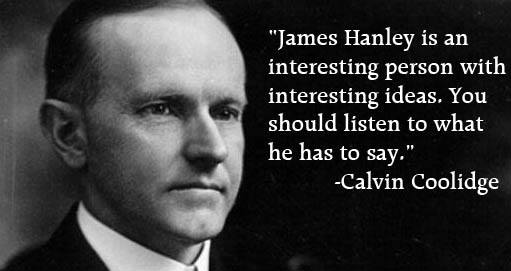 James Hanley explains that contrary to what you may have heard, Oklahoma is not banning secular marriage.
James Hanley explains that contrary to what you may have heard, Oklahoma is not banning secular marriage.
The following is adapted from the comment I left there…
MRS and I spent quite a bit of time on Friday trying to hash this out Over There. It was an exercise in futility.
The amount of misinformation on this has been staggering. So many people seemed insistent on believing it because Oklahoma and because Christians.
I’m not even in favor of the law, but I still spent most of my time defending it against the notion that it was going to bar non-Christians and non-Jews from getting married (and that Common Law marriages aren’t “second class” in the context of the law, and that calling them Common Law marriages was not intended to slight gays, and… jesucristo I want my Friday back.)
For most of the day, we were arguing with the belief that judges had still been eliminated, and even then I think the law was defensible.
I actually like the affidavit thing. I am not sure if we’d have gone that route (I would have, but Clancy was pretty lukewarm on it when I explained it to her), but that was a genuine improvement. Michael Cain actually argues that the verbiage of the Quaker provision is such that even an obvious non-religious organization, such as a University of Tulsa Linux Club, could theoretically give the right to marry.
Everything else just seemed geared towards protecting the sensibilities of clerks, which I am pretty indifferent to. I actually have a fair amount of sympathy for private actors who don’t want to take part in a gay wedding, including but not limited to photographers and cake-bakers and especially pastors. But clerks aren’t private actors, and equal treatment is in the job description.
I still like the Wyoming model, where just about anyone can get the right to marry. Or the French model, where religious marriage and civil marriage are treated independently.
Clancy and I were married by a judge. Which is technically a civil ceremony but he dropped God’s names and the one biblical thing I did not want in my wedding (Corinthians) was inescapably there in the service. (I would have liked to include Ecclesiastes, but that didn’t work out.)
When Clancy came home on Friday night and asked my day, I explained that I spent a lot of it contemplating marriage. She said that she should have been a part of that conversation.
And lastly, there is a specific provision (the above-mentioned Quaker provision) that singles out religions that do not have a formal pastor that conducts ceremonies. Among the religions mentioned is Bahai, which by itself demonstrates that the Judeo-Christian provision was not enforced, as Bahai is not a biblical religion.
Among the things I discovered while debating the subject was that there is actually a Bahai temple right here in the Tri-State Area, which I would not have guessed. And apparently Bahai is a pretty big deal in South Carolina, which I also wouldn’t have guessed (though I may have read that before).
hotestheadsofstate.com has a list of the hottest US presidents. It cheats a little with some of the pictures, showing them when they were younger. Franklin Pierce grew into a clone of Mitt Romney, which is reasonably attractive, but nothing like the photo presented. I’m on board with the top five, more or less, but it kind of goes off the rails after that.
I’m rather shocked by George W Bush being in the top ten. I’m also a bit surprised to see Taft and Cleveland, our two most obese presidents, avoid the bottom of the list.
Relatedly, here is a list of presidents who were hot when they were younger. Teddy Roosevelt’s position on this list makes more sense. When I was audioreading How Few Remain, which features a young TR, I never got away from envisioning the older version. He actually looked like an actor I can’t quite place. Can you place him?
Over There, I posted about Wisconsin Governor Scott Walker’s college career, and whether or not it should be considered in his run for the presidency:
There are a lot of professional positions that do not require a college degree. Ultimately, most don’t, because if they did, they would go unfilled. There is also an argument to be made that a lot of jobs that do require college degrees probably shouldn’t, though no doubt Okeem would disagree with that.
To be sure, there are jobs where college degrees matter a great deal. If I’m going under a scalpel, I probably want the scalpel-wielder to have either an MD or a DO or its equivalent. Engineers should demonstrate formal training in engineering. With rare except, teachers and professors should have their appropriate degrees. There is nothing elitist or snobbish about saying so.
It is perhaps ironic that executive positions are not always among that. He mentions, but dismisses the Bill Gates example. But after becoming an entrepreneur, Bill Gates did represent a gargantuan enterprise. Nobody thought that Microsoft’s Board ought to have replaced him so that their company could be represented by someone with a degree. And if Bill Gates were to want to get back into the business world, he would be (and should be) judged entirely on what he accomplished in business. As far as hiring goes, the importance of a college degree is that it gives employers a greater degree of confidence that you can achieve. If you have already achieved, then it’s beside the point.
I’m honestly a little bit (but only a little bit) surprised by the number of people who really stick to “it matters” and believe that a college degree confers something in accord with experience.
I think it can matter as a brick in the wall of a larger argument, that he is intellectually dim, lacks knowledge really important to the presidency, or doesn’t follow through. To date, I don’t find any such arguments convincing. In large part because of what he has accomplished since college. That’s not an endorsement. You can look at what he’s accomplished and say “There is no way I am ever voting for the guy!” but he’s not a mayor of Wasilla and a governor who has barely gotten their feet wet. There’s a record to look at that, in my view, has to be far more illuminating than the decisions he made twenty years ago with regard to his college education.
There also seem to be people who really believe that Obama’s life and experience equipped him to be president more than Walker, including the part about Obama’s BA and JD but also because the Senate is a better launching pad to the presidency. We’ve had a strong bias towards governors for quite some time, and I think it’s quite possible that the pendulum has swung. I think the argument is actually quite solid that we’ve put too much stock in governorships. But I think four years as governor of a mid-size state is always going to trump two years as a senator, and there is little else in their background to strongly distinguish between the two.
Though this is not an endorsement of Hillary Clinton, I do think we overloop cabinet appointees too often, particularly Secretaries of State and Defense, and maybe Attorney General. I’d add Treasury, but it would probably do a disservice to the position for it to be considered a launching pad to the presidency.
Anyway, lots of comments over there. Feel free to leave your thoughts here.
West Virginia Senator Joe Manchin is considering running for his old job as governor:
“Senator Manchin loved being governor of West Virginia and has made no secret of his frustration with the partisan gridlock and dysfunction of Washington,” Manchin spokesman Jonathan Kott told the Gazette last April. “Senator Manchin is leaving all his options open for 2016 and will continue to look for the best way to bring common sense to Washington.”
The following month, in May 2014, Manchin told the AP he was keeping “all options open.”
I have two minds on the subject.
A part of me doesn’t understand why politicians would ever trade a governorship for the senate. Politicians are, by their nature, ambitious. If you’re a governor, you’re the Big Fish. You are the chief executive of one of the fifty states of the most powerful nation on Earth. Why would you give that up to be a freshman senator, where you have but one of a hundred votes. The best reasons I can think of are:
- You come from a small and comparatively inconsequential state. Like, say, West Virginia. You may be the most important person next to the president for the West Virginia Gazette, but you’re rarely going to get on Meet the Press as a governor. Of course, a lot of senators never get on Meet The Press either, but your odds are better.
- You can, ultimately, be more powerful as a senator than you can as a governor. It’s unlikely that you will, but you can. It’s a bit of a moving target as the larger the state you are from, the more difficult it is to get more power as a senator. But there’s not much doubt that Tom Daschle (D-SD) or Harry Reid (D-NV) became as senators what they never would have become as governors. The same is likely true of any recent Senate Majority Leader, as they have come from smaller states (the largest being Tennessee). That may be a product of the senate’s small state advantage, or may be the product of ambitious people from small states focusing on the senate instead of state politics, or both.
- Being in the senate can be easier. Say you are not all that ambitious (for a politician). You want to have influence, and you want to make your mark, but you don’t want to actually be responsible for much. The Senate is the perfect place for you! Now, senators can throw themselves into the job, like John McCain, but you don’t really have to. You go to some meetings, you make some speeches, and you vote on bills. The pension is nice. You might get some stuff named after you (even if you are an unremarkable senator). When you leave, you can make a lot of money as a lobbyist. Which brings me to…
- Income potential. You make a lot of connections in Washington that you wouldn’t make in your state’s capital. You get to know people and other people will want to pay you lots and lots of money to introduce them to the people you used to know.
- You want out of your stupid backwood state and want to live in DC. This is presumably more of a draw if you’re from South Dakota than California, but some people – and politicians in particular – like to live in important places. Washington DC is one of the most important places on earth.
- Term limits, where applicable.
- You’re from a small state but you want to be president. This one is actually pretty dubious. If you’re from a small state, it’s exceedingly unlikely that you come from a small state. The only two presidents in recent history to come from small states are a charismatic governor and a very important general. A couple small or middling state senators have gotten party nominations, but they lost. If you want to be president, it’s historically been better to be a governor. Though between Obama and Hillary Rodham Clinton, maybe that’s changing.
Personally, I find reason three to be the most compelling. Other than term limits, of course. But that’s the mentality for why I would make a crappy politician.

